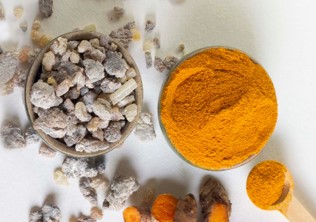Which is Better source of Omega-3: Fish oil vs Flaxseed Oil
In today’s health-conscious world, we’re all looking for ways to optimize our diets and improve our overall well-being. When it comes to healthy fats and omega 3, there are plenty of options out there, but which one reigns supreme? Some people swear by fish oil, while others insist that flaxseed oil is the way to go for omega 3. So, let’s dive in and explore which is the true king of the omega-3s. Importance of Omega-3 Omega-3 is a crucial nutrient that plays a vital role in maintaining overall health and well-being. It’s an essential fatty acid, which means our bodies can’t produce it naturally, and we have to obtain it through our diets. ‘ Omega-3s have been linked to a variety of health benefits, including reducing inflammation, supporting brain function, promoting healthy skin and hair, and even improving heart health. So, it’s essential to make sure you’re getting enough omega-3s in your diet, whether through foods like fatty fish, flaxseeds, chia seeds, or supplements. Differences between Fish Oil and Flaxseed Oil Fish oil and flaxseed oil are both sources of omega-3 fatty acids, which are essential fats that our bodies need to function properly. However, some key differences between the two are listed below. Fish oil: – Source: Fish oil is extracted from fatty fish such as salmon, mackerel, and tuna, which are rich in omega-3 fatty acids. – Types of omega-3s: Fish oil contains two types of omega-3 fatty acids, eicosapentaenoic acid (EPA) and docosahexaenoic acid (DHA), which are readily absorbed by the body and have been linked to a variety of health benefits. – Benefits: EPA and DHA in fish oil have been shown to support heart health, reduce inflammation, improve brain function, and support healthy skin and hair. – Potential downsides: Fish oil can have a fishy aftertaste and smell, and it may not be suitable for people with seafood allergies. Flaxseed oil: – Source: Flaxseed oil comes from the seeds of the flax plant, which are also rich in omega-3 fatty acids. – Types of omega-3s: Flaxseed oil contains alpha-linolenic acid (ALA), which is a precursor to EPA and DHA. However, ALA is not as easily absorbed by the body as EPA and DHA, and the conversion process is not very efficient. – Benefits: Flaxseed oil has been shown to reduce inflammation, improve heart health, and support healthy skin and hair. – Potential downsides: Flaxseed oil has a higher ratio of omega-6 to omega-3 fatty acids than fish oil, which can contribute to inflammation in the body if consumed in excess. It also has a shorter shelf life than fish oil and may become rancid more quickly. ConclusionBoth fish oil and flaxseed oil are excellent sources of omega-3 fatty acids, and which one you choose may depend on personal preference, dietary restrictions, and health goals. While fish oil is generally considered to be more effective due to its higher content of EPA and DHA and its better absorption by the body, flaxseed oil can be a good option for vegetarians, vegans, or those with seafood allergies. At Arjuna Naturals, we offer high-quality omega-3 extracts sourced from both fish oil and flaxseed oil, ensuring that our customers have access to the benefits of both sources. We believe that both fish oil and flaxseed oil can play an important role in supporting overall health and well-being, and we are committed to providing our customers with safe, effective, and sustainable supplements to help them achieve their health goals.











